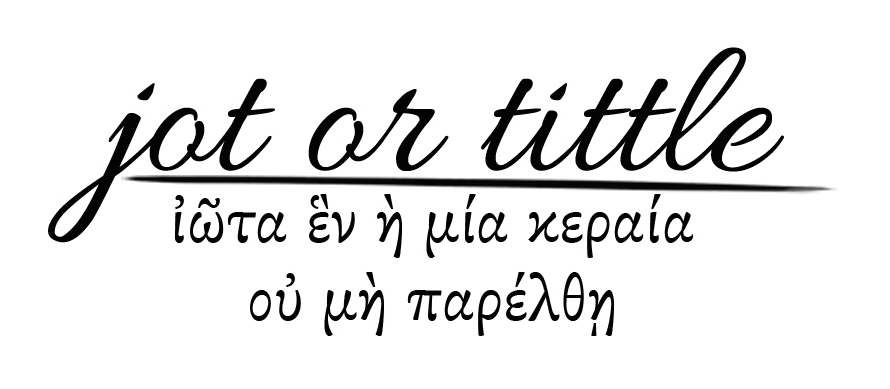What Paul Said to the Corinthians
As I’ve been studying 1 Corinthians with my small group, a theme that has come up repeatedly is the gospel and the way that it informs all of Paul’s thinking as the thing of “first importance” (1 Cor 15:3). This poem tries to capture the spirit of 1 Corinthians 15:1–11, which many consider to be his clearest expression of the content of the gospel.
We often think of “the gospel” as the explanation about how to be saved. This is true, and there is a sense in which it is appropriate to refer to this as “the gospel,” but the gospel is so much more than that.
The word “gospel” comes from an old English translation of the Greek work evangelion, which means “good news.” The context of an evangelion in ancient cultures was often a victory in battle. A victory in battle is good news both because you like it when your side wins and because that usually has good implications for you (like not being destroyed).
Our gospel, like ancient gospels, is a story of victory. It’s the report of God’s victory at the cross and Christ’s rising from the dead. This is amazing in itself, but it also has manifold implications that are inseparable from it, like salvation being by grace through faith for good works (Eph 2:8-10) and the gentiles being welcomed into the family of God (Eph 3:6).
When Christians talk about being gospel-centered, they don’t mean that they are focused primarily on telling people how to be saved (although we should be very focused on this!). Being gospel-centered means that the fact that Jesus died for our sins and rose from the dead as “the firstfruits of those who have fallen asleep” (1 Cor 15:20, ESV) is the central fact of our lives—the thing that defines every aspect of our existence: our hopes, our thinking, our behavior, our fears. “What would Jesus do?” is a fine question, but the gospel-centered Christian asks, “Does every part of my life and the life of the church follow from what Jesus has done?”
The idea for this poem came to me as I was reflecting on the way the gospel is at work behind Paul’s arguments in 1 Corinthians. I thought of the first two and last two lines of the first stanza (I’m not sure in what order), and I wrote them down. I should have been working on my professional tasks, but I wanted to get my ideas down before I lost them. And once I started, I wanted to keep going.
It occurred to me that, as in 1 Cor 15:1–11, the line “To this the Scriptures testified” could repeat. Then it occurred to me that every stanza could end with “testify.” At that point I had a pattern to build the poem around, focusing on different parts of the passage in each stanza.
I was pleased with the early drafts, although there is a lot I don’t like about them now. I find that when I’m trying to make a meter and rhyme scheme work, I often resort to backward constructions and syntactic shortcuts. The result is often a poem that only makes sense to me, or to someone who is willing to put in a lot of work parsing it out:
I’m not the one who first believed—
I gave to you what I received.
No other word can grant relief:
To save us from our sins, Christ died.
To this the Scriptures testified.
What you’ve received—in this you’ll stand
If you hold fast th’eternal plan:
The Lord was buried in his land
But on the third day found alive.
To this the Scriptures testified.
To Simon Peter, then the ten,
five hundred others—women, men—
He appeared to them again.
Some of these are still alive,
And to these things they’ll testify.
And then to one untimely born,
Unworthy, violent slave to scorn,
He last of all appeared to—me!
To live—God pleased—like him, I’ll die.
To this, for this, I testify.
The structure of the poem is there, and I appreciate that it sums up the passage neatly with a memorable pattern. But it needed some work. I hope the final version is a little more straightforward and accessible than this one.
Other Poems
-
2021
- Aug 15, 2021 The Lord, the Lord
- Feb 6, 2021 What Paul Said to the Corinthians
-
2020
- Aug 8, 2020 For My Dog
-
2019
- Nov 8, 2019 because
- Nov 1, 2019 When I Say It
- Oct 22, 2019 What I'm Feeling
- Jun 27, 2019 Rushing Light
- Jun 20, 2019 Genesis 37:25
- Jun 7, 2019 At Thirty
- Mar 4, 2019 The End of Wisdom
- Feb 25, 2019 With Styled Words
- Feb 18, 2019 Stargazing at Hartley Springs

